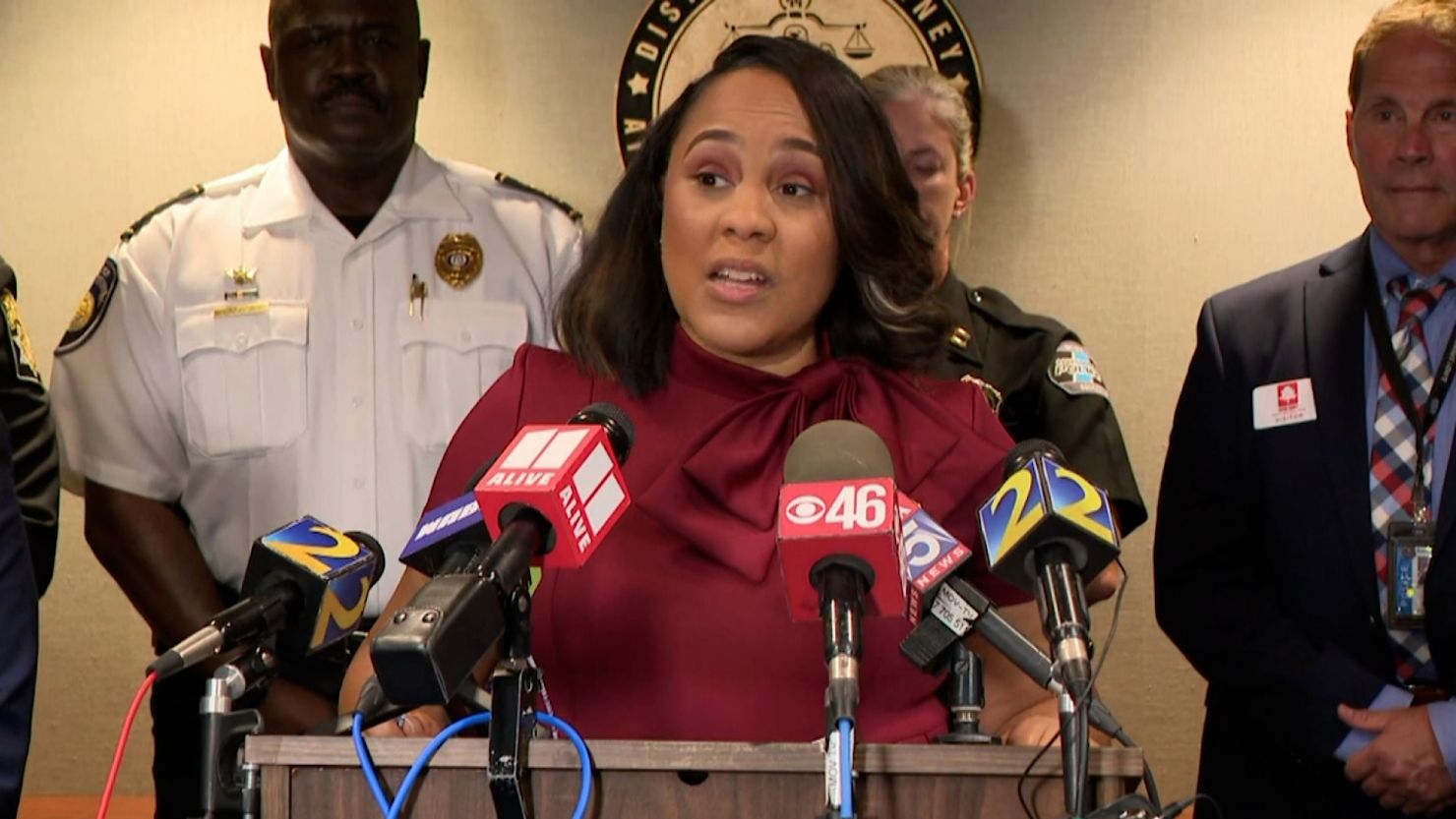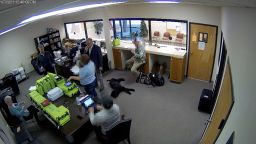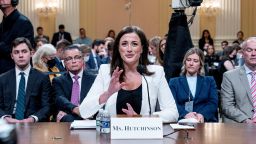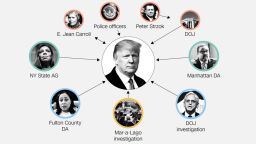The Atlanta-area prosecutor investigating Donald Trump and his allies has hit a roadblock in her effort to gain testimony from some of the state Republicans who signed on as fake electors in order to thwart Joe Biden’s 2020 victory in Georgia.
Fulton County District Attorney Fani Willis took an aggressive approach in dealing with Georgia’s group of 16 GOP electors, subpoenaing at least 12 of them over the summer and labeling all of them targets who could face indictment.
But that tactic appears to have undermined her ability to obtain potentially crucial testimony from the exact people who could provide inside accounts of the operation to overturn the election in Georgia, including what if any role the former president played.
Willis has recently attempted to lower the temperature by floating the possibility of immunity for some of the electors if they agree to appear before the grand jury, according to people familiar with the matter.
So far, that strategy has met with little success, those people tell CNN.
The fight with the Georgia fake electors marks a distinct change from earlier in the investigation, when Willis was able to gain at least some cooperation from a handful of them. Willis obtained testimony from at least one member of the broader group of 16 GOP electors, Ken Carroll, who confirmed to CNN he has testified before the Fulton County grand jury.
Eleven of those electors, some of whom were initially cooperative, have recently balked at Willis’ tactics. The group has hired the same pair of attorneys and refused to answer questions before the special grand jury, in large part to protect their right against self-incrimination.
Willis has taken aim at their joint legal representation and has sought to have their attorneys disqualified, as she tries to nail down testimony from the electors. Prosecutors working with Willis argued in a recent court filing that having the same attorneys represent the group is a conflict “rife with serious ethical problems.”
A spokesperson for Willis declined to comment.
Attorneys for the 11 Republicans, meanwhile, insist their clients did not commit any crimes, nor would they have incriminating testimony to provide against one another.
Push to wrap by end of the year
The informal immunity discussions illustrate the challenges Willis is grappling with as she aims to wrap up the grand jury’s investigative work this year. The stalemate with fake electors comes as the grand jury is scheduled to hear testimony from a set of other high-profile witnesses this week, including Georgia Gov. Brian Kemp, South Carolina Sen. Lindsey Graham and Cassidy Hutchinson, a former aide to former Trump White House chief of staff Mark Meadows.
Willis has been aiming to wrap up the investigative work that a special grand jury has been conducting for the past six months. After its work is complete, the panel will issue a report and can recommend indictments. But legal experts told CNN Willis could potentially seek indictments even before the special grand jury concludes its work.
Since Willis designated the group as targets in July, a grand jury convened in the probe has yet to hear testimony from the 11 Republican electors who are represented by the same attorneys and are embroiled in a dispute over which questions are covered by the Fifth Amendment rights against self-incrimination, according to a person familiar with the matter.
In a November 10 court filing, lawyers for the 11 electors wrote that “each jointly represented elector has repeatedly affirmed to their counsel that they did not engage in any criminal activity and that they have no knowledge of any of the other jointly represented nominee electors engaging in any criminal act or activity.”
Still, legal experts tell CNN that having multiple targets of an investigation represented by the same law firm is fairly unusual.
“It is unusual to have one firm representing that many different clients,” said Melissa Redmon, a law professor at the University of Georgia and a former Fulton County prosecutor. That situation becomes particularly complicated if some clients are offered immunity deals, while others are not, said Redmon.
“If everyone is represented by the same counsel, how do you have that conversation?”
Georgia GOP chairman
Among the most prominent of the fake electors is Georgia Republican Party chairman David Shafer, who worked with the Trump campaign to organize the elector slate.
Shafer and two other electors were scheduled to testify before the grand jury earlier this year, the source said, telling CNN that the DA’s office ultimately moved to postpone until the dispute was resolved.

Shafer has been bracing for the possibility that he could be among those indicted, perhaps as a tool to pressure him to flip on more prominent targets, including those in Trump’s immediate orbit, a person familiar with his thinking said. The Georgia GOP chairman has also been subpoenaed by federal investigators and handed over documents, according to the same source.
Shafer’s Georgia attorneys have insisted that he has not committed a crime. They have argued that he and others merely served as pro-Trump electors in the event that Trump’s legal challenges succeeded in the state. The lawyers claimed in a recent court filling that the group of electors had no knowledge that others in the Trump campaign, including attorneys Rudy Giuliani and John Eastman, had plans to use the fake elector slates to block the certification of the election.
The attorneys also slammed the district attorney’s office for suggesting “that Mr. Shafer and perhaps others in the Georgia GOP leadership are differently situated than the other Republican nominee electors because they were supposedly privy to plans to which the others were not,” according to a recent court filing. “These intimations are entirely baseless.”
Shafer has also provided documents to federal prosecutors as part of the Justice Department’s ongoing investigation related to January 6 and efforts to overturn the 2020 election but has not testified before the grand jury in that probe, according to a source familiar with the matter.
The Georgia Republican Party chairman could still be summoned to appear before a federal grand jury. But if he is indicted in Georgia, it could make it more difficult for federal prosecutors to obtain his testimony, sources said.





